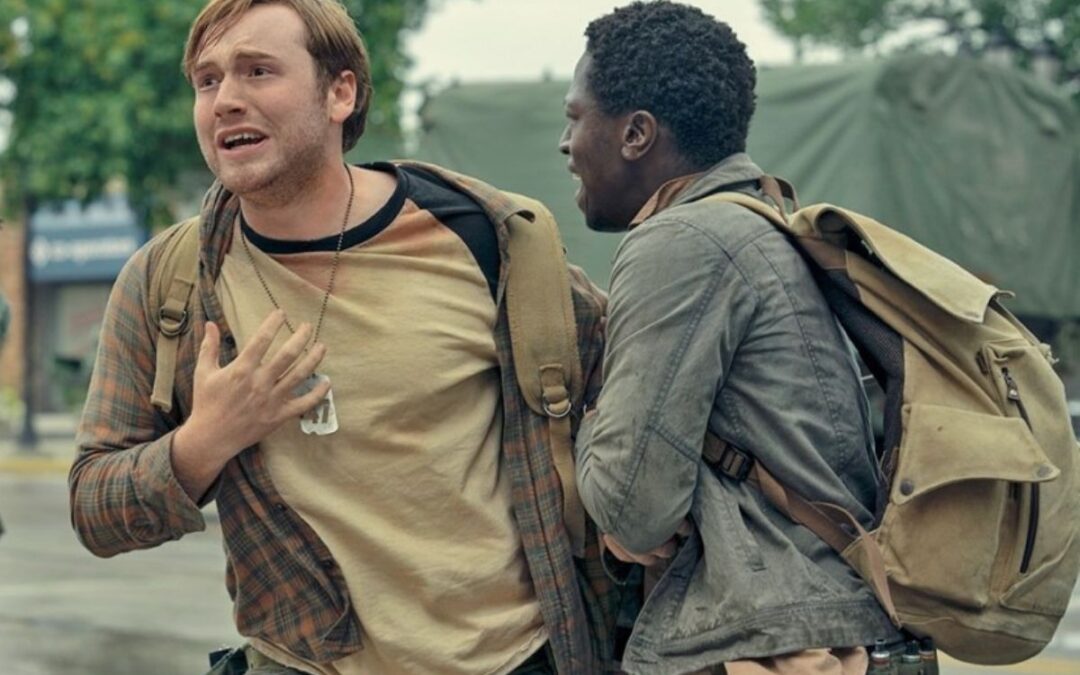Richard Bachman is the pseudonym of Stephen King, his famous work ‘The Long Walk’ is one of the most haunting dystopian novels ever written by him. The story has its own fan base. The raw portrayal of endurance and psychology of survival has been praised over again. In the recent adaptations of King’s less-known works, many are turning their attention back to the original works, and often asking the same questions: how does it differ from the book version compared to other interpretations or early drafts?
Before diving into the differences, let us briefly revisit the premise.
What is The Long Walk About?
The Long Walk is a survival contest set in a dystopian American. Every year, one hundred young boys are selected to participate in an exhausting walking competition where the rules are simple yet terrifying. The rule is to maintain a steady pace of at least four miles per hour. If you fall below that pace more than three times you are shot by the invigilating soldiers who are overseeing the event. The last boy left walking wins the prize and that is anything he wants for the rest of his life.
The Book’s Ending
Nearing the end only Garraty remains who is also the protagonist. Even after witnessing his companions collapse or be executed, Garraty keeps walking. His exhaustion is so heavy that his perception of reality starts to blur.
King ends the book with Garraty seeing a “dark figure” ahead. Despite being broken, he somehow finds the strength to run toward it. The story is cut short here in this scene. Rest of the interpretations are left for the readers, questions like did Garraty collapse, did he die and many more. This uncertainty at the end of the novel is why it stuck with people even decades later.
The Movie’s Ending
The 2025 film directed by Francis Lawrence takes a very different route. The final three walkers are Garraty, McVries, and Stebbins. Stebbins gives up first and is executed, leaving Garraty and McVries. Garraty decides McVries is better suited to win and willingly sacrifices himself. He stops walking, accepts execution, and McVries is declared the winner.
Here’s the twist: McVries uses his winner’s prize to request a rifle. On the live TV, he shoots and kills the Major. Then he walks away into the night, with his future being uncertain.
The Key Differentiation Between Book and Movie
Then what really separates the two versions?
First is the winner, in the book Garraty wins but the victory feels meaningless. Whereas in the movie McVries wins after Garraty’s sacrifice. There is a sense of ambivalence in the ending of the book but in the movie the audience gets a closure and a sense of satisfaction in knowing what really happened. The tone of the book and movie also differs when we talk about the ending of both. One gives an unsettling vibe leaving room for our own interpretations and in the movie it is still tragic but it is also decisive, delivering a dramatic ending which hits hard on the screen.
Why Did the Filmmakers Change It?
Francis Lawrence and screenwriter JT Mollner explained that they wanted an ending that worked in a visual medium. An abrupt, ambiguous fade-out like the book might have left moviegoers frustrated rather than haunted.
They also gave Garraty more personal stakes in the movie (his father’s execution by the Major) and built toward a moment of sacrifice and vengeance. Interestingly, Stephen King approved the changes, even though the film flipped the winner from Garraty to McVries.
Which Ending Works Better?
This depends on what you want from the story. If you love unsettling ambiguity, the book’s ending hits harder. It leaves a huge room for your own interpretations, where each viewer can come up with their own versions of the ending. It forces you to live in Garraty’s exhaustion and madness, with no clear release.
If you prefer resolution and catharsis, the movie’s ending is more satisfying. McVries’s act of rebellion against the Major delivers a form of justice that the novel deliberately withholds. In simple words, the major difference between the movie and the book could be labelled as the book keeps you thinking without a concrete view of the ending. Readers keep on thinking and coming up with various conclusions, whereas in the movie, you get a more settled version of the ending. Either way, both versions underline the same truth: in The Long Walk, there are no real winners.
Also Read: The Witcher Season 4 Release Date Confirmed; Liam Hemsworth Steps In
Final Thoughts
The Long Walk has always been one of Stephen King’s bleakest tales, and now, with its movie adaptation, fans get to see two very different takes on the same harrowing journey. The book leaves us haunted by its ambiguity. The movie leaves us with sacrifice, vengeance, and a clear message about resisting cruelty.
Both endings are powerful, but in different ways and maybe that is the point. Whether you prefer King’s haunting uncertainty or the film’s dramatic rebellion, The Long Walk continues to be a story that refuses to let us go.
Written by Kenbi Riba

